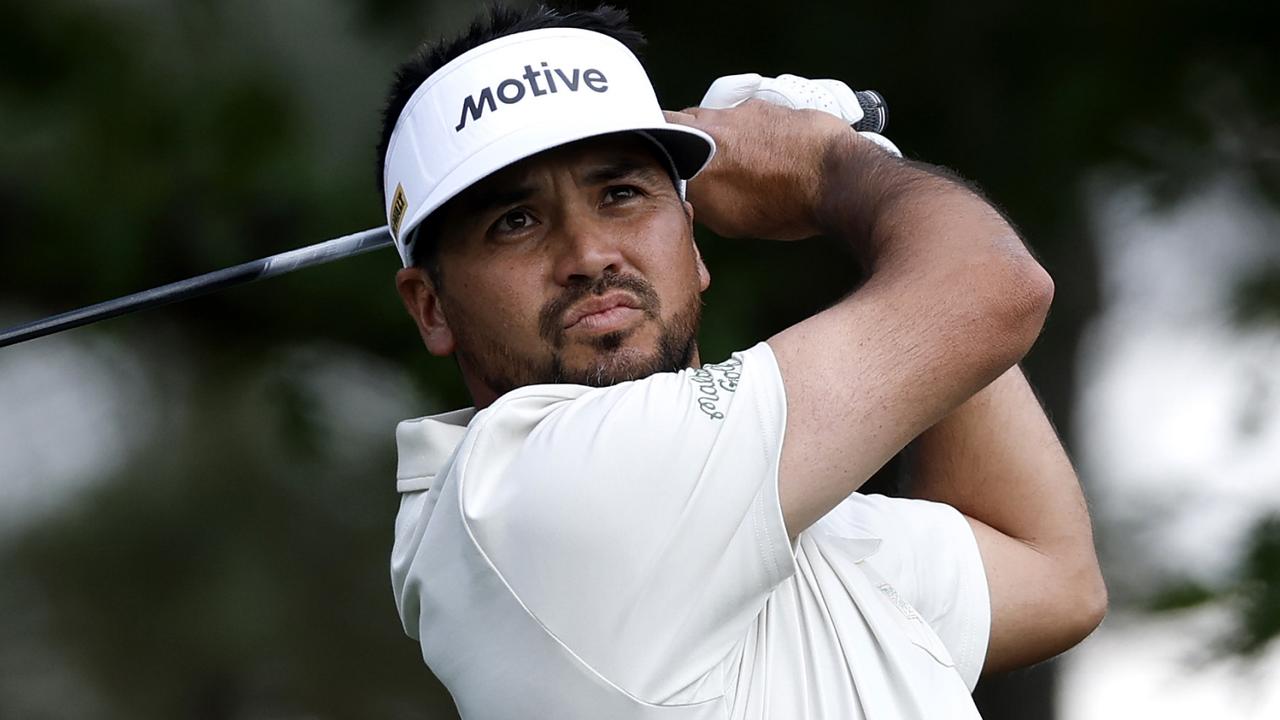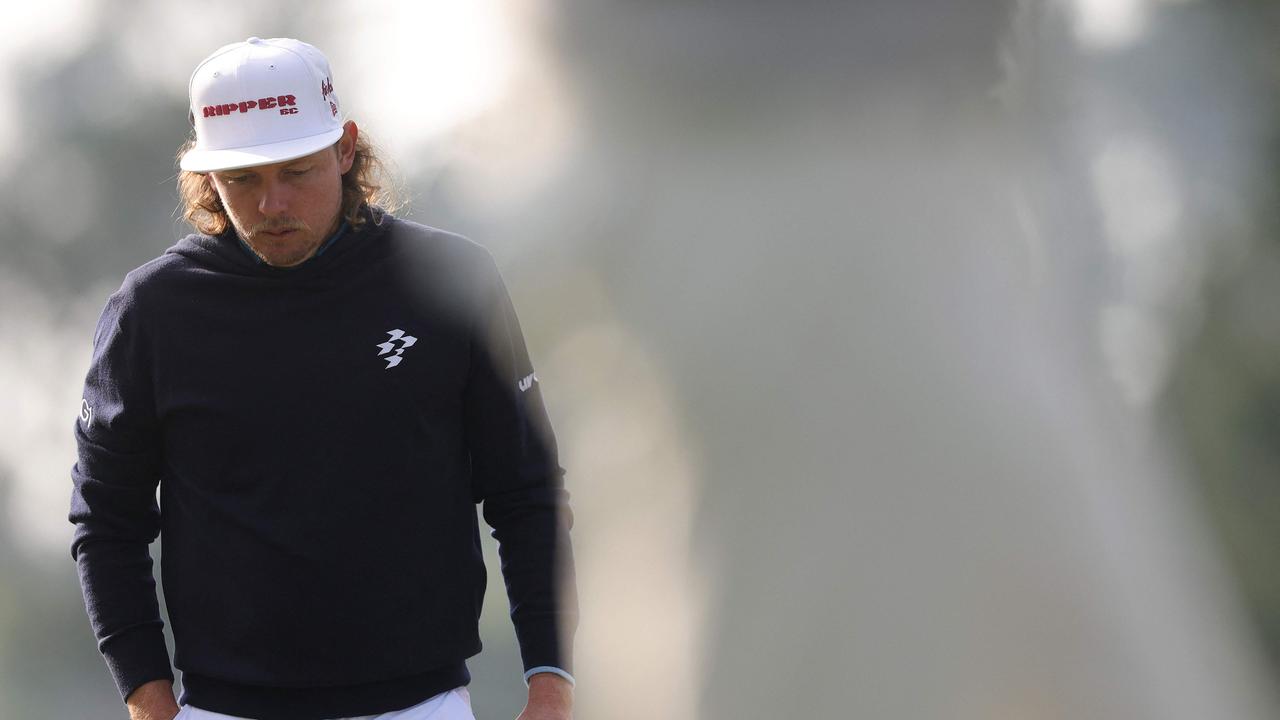The lesson for Rory McIlroy from his latest miserable major miss at 2023 US Open
It’s nine years since Rory McIlroy’s last major victory and six since his former caddie asked him point blank: ‘You’re Rory McIlroy. What the f--k are you doing?’ The question lingers, writes RICK BROADBENT.
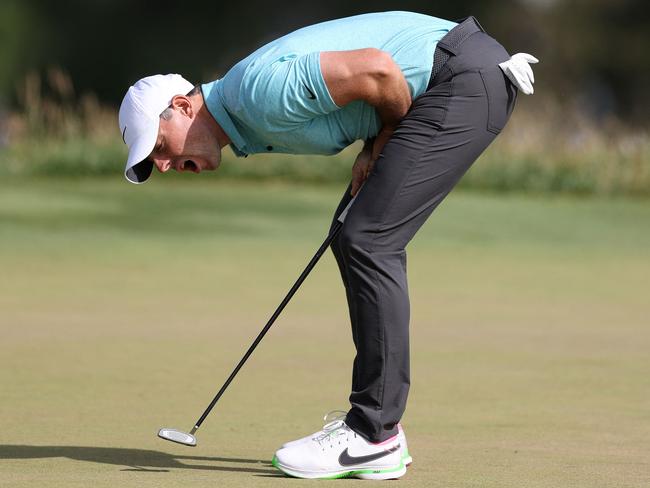
Golf
Don't miss out on the headlines from Golf. Followed categories will be added to My News.
It is nine years since Rory McIlroy’s last major victory and six since his former caddie, JP Fitzgerald, assessed an error-strewn start to the first round at the Open and said: “You’re Rory McIlroy. What the f--k are you doing?” The question lingers.
McIlroy, now 34, played well at the US Open. He hit fairways and greens and, not long into the final round at the Los Angeles Country Club, was in a straight duel with Wyndham Clark. He trailed by a shot for much of the round, and when the lead did grow, Clark then stumbled, making bogeys on the 15th and 16th. There were chances, but McIlroy missed five putts from between four and 14 feet. Just one would have forced a play-off. He said he would endure another 100 Sundays like it to get one more major, but to amend a line from a North Course neighbour Lionel Richie, it will never be easy like Sunday morning. When the pressure is on late on a major afternoon, McIlroy has been found wanting.
Last month Brooks Koepka defined a choke as having a last-day lead and not winning. McIlroy started the final round a shot behind Clark and finished there, so it was not a choke, but it was still decidedly average on the greens. And that is not new. On the PGA Tour McIlroy is ranked 181st for putting between 15 and 25 feet. When it comes to the average distance of his birdie putts, he is ranked 192 of 194. Of 190 birdies on Sunday, he had one of them.
It may be that Clark has the answer to all this. He, too, had a problem with closing out tournaments and had gone 133 without a win until last month’s Wells Fargo Championship. Frustrated, he had turned to a woman nicknamed “Stealth”. Best known for working with Phil Mickelson, the sports psychologist Julie Elion told him to do two things – enjoy himself and be cocky. Now he is a major winner and the world No 13.
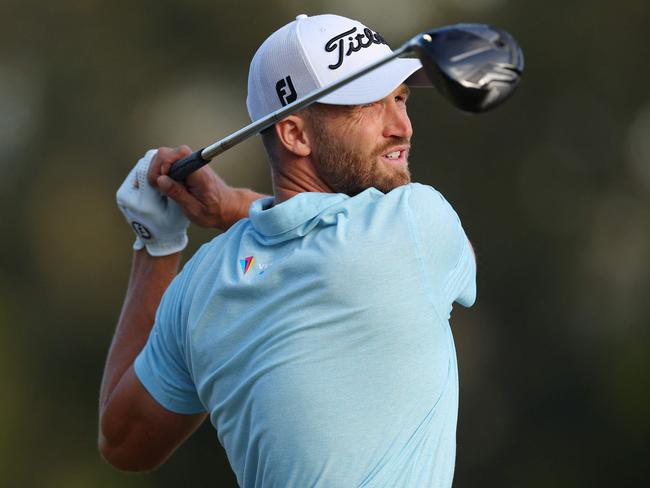
Elion’s advice might not sound like rocket science, but given that Clark was playing the final round with Rickie Fowler, who had the bulk of the fans on his side, it played its part. “Julie told me, ‘Every time you hear someone chant Rickie, think of your goals and get cocky, go show them who you are’. It was like 100 times today I reminded myself of my goals,” Clark said.
Initially, the American was not keen on teaming up with Elion. It all sounded a bit nebulous but he accepted he was not the strongest mentally. In his college days, his coach likened him to Mount Vesuvius and Clark admitted: “I was breaking clubs when I didn’t even hit a bad shot.”
Part of that was down to the emotional trauma that followed his mother’s death from cancer in 2013, but he was still toiling against demons this year. And in January he decided he finally needed to sort out his mental approach. “It was either that or quit,” he said. “I wasn’t having any fun.”
It worked at Quail Hollow when he won the Wells Fargo and again in Los Angeles. “It’s huge in a major championship because you can get tunnel vision,” Clark said. “It’s great to sometimes just look up and be like, ‘Hey, this is just like any other day. I’ve done this a thousand times’. I was a little reluctant to do it, but I’m just so glad that she was brought into my life. These six months it’s crazy to see how much I’ve improved and how much she’s helped me.”
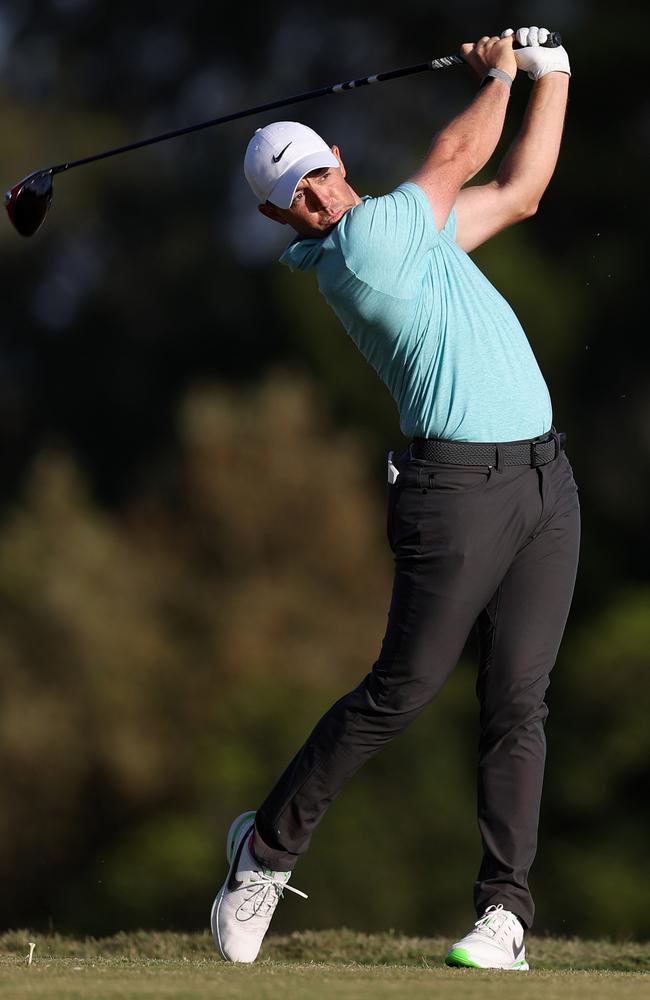
McIlroy has briefings with the golf psychologist Bob Rotella and may think he has this covered. “Not doing a lot wrong, but I didn’t make a birdie since the first hole,” he said. He just needed to be more “efficient” with his opportunities. He will for ever regret the wedge that became embedded in the bank of the bunker on the 14th, but he received the gift of a free drop. The wedge was one thing, but not capitalising on that stroke of fortune was the killer. A birdie there would have tied the lead, but in a short time the lead was three. In the meantime, Clark got cockier.
McIlroy had lost his own swagger by the end and it continues a theme at the majors. This year he missed the cut at the Masters and has spoken about the mental deflation that induced. Yet he has still had seven top-tens this year and a win in Dubai. Plenty of players would give their right arm for that, but he is Rory McIlroy.
He gave an insight into his psyche with a remark at last month’s US PGA Championship. It was put to him that he had been ruthless in 2014, when he was last winning majors. “I find being that way pretty exhausting,” he said. “I don’t feel I need to be that way to be successful on the golf course.”
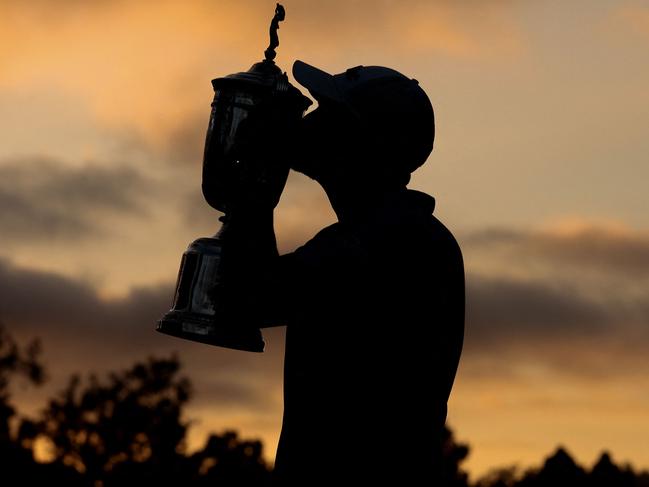
Now he will have the additional angst of trying to make sense of the merger between the PGA Tour and the Saudi Public Investment Fund. Jon Rahm has said there is a feeling of “betrayal” among players, and given the PGA Tour has been happy to use McIlroy as its figurehead in the anti-LIV Golf fight, he will feel that as acutely as anyone.
Back at the start of this year, McIlroy admitted he was drained psychologically from the to and fro with LIV Golf and his subsequent role in reshaping the PGA Tour. In LA you could sense a slightly chippy edge in brief interviews, and he cancelled his official pre-tournament press conference.
If he is getting selfish after giving so much then that may be no bad thing. As Clark might advise, don’t get mad, get cocky. There is sometimes method in the mantras.
Originally published as The lesson for Rory McIlroy from his latest miserable major miss at 2023 US Open

